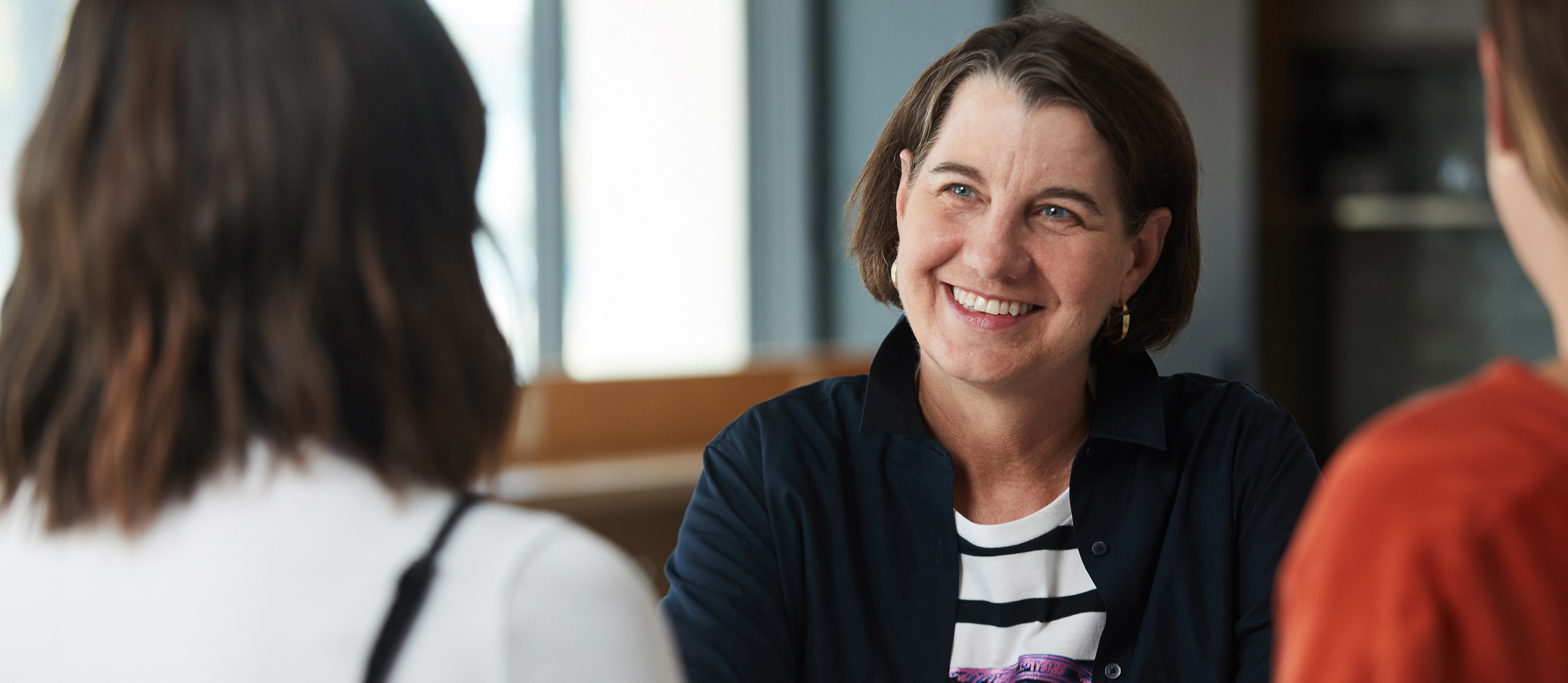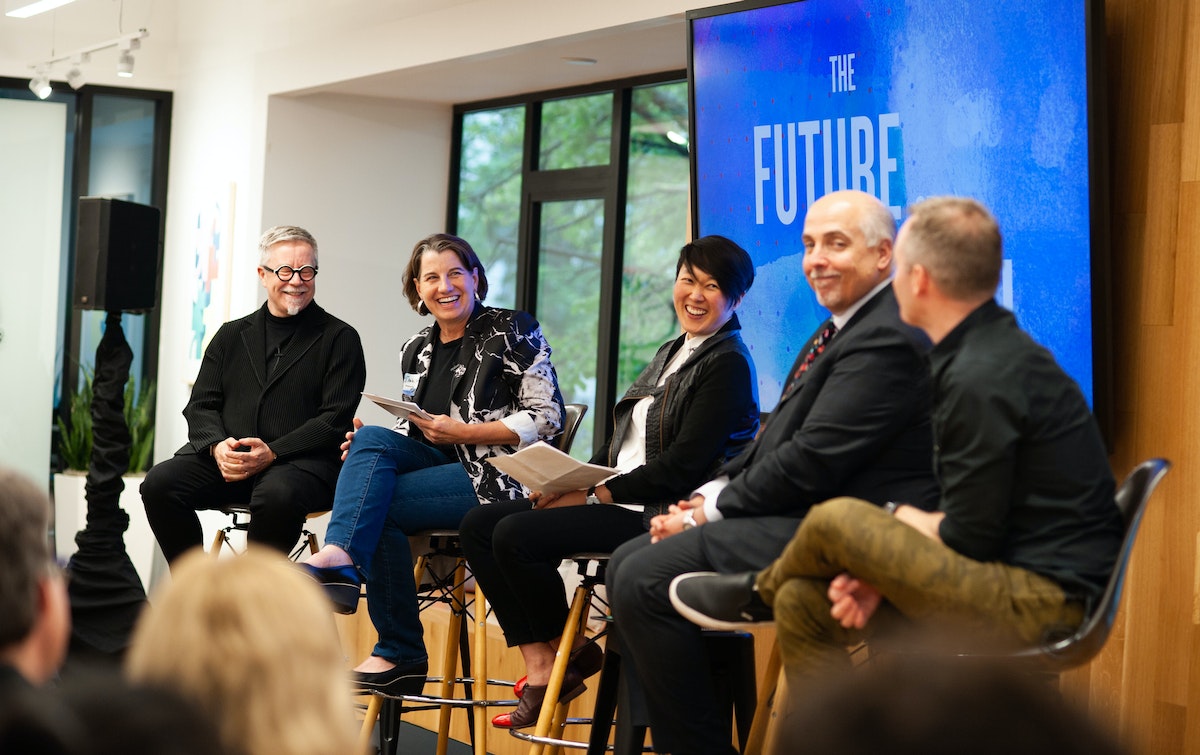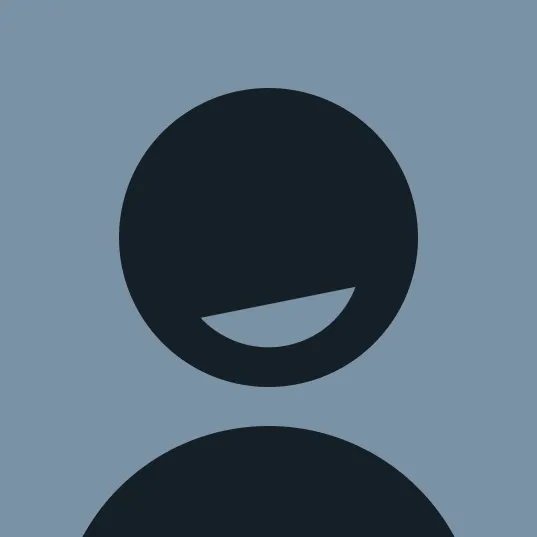From Fail Never to Fail Fast

When Dawn Laguens looks back on her eight years leading brand and public strategy at Planned Parenthood Federation of America, she describes a typical work day as “catch grenade, throw grenade back, run two steps forward.” To be sure, the years from 2010-2018 were eventful for everyone, and particularly for people like Dawn, who were on the front lines of vicious political conflicts, while simultaneously doing the daily work of advocating for accessible and effective healthcare solutions for women worldwide.
Six months ago, Dawn announced she’d step down from Planned Parenthood, having successfully helped transition the organization from the leadership of long-time president, Cecile Richards. Instead of hurling herself straight into leading at another large organization, Dawn decided to dedicate a year to experimentation and discovery as expert-in-residence at IDEO.
Dawn is now working with teams across IDEO and IDEO.org to find new ways to catalyze change. In particular, she wants to uncover how best to use data and technology to improve service delivery and support movement-building. Coming to IDEO, she says, “I saw an opportunity to ask, How do we use human-centered design principles, entrepreneurship, and data and technology to transform how we are reaching people and working alongside them?”
Not one to be daunted by ambitious goals, the first official project Dawn is helping to launch is The Billion Girls CoLab—an initiative aimed at harnessing new coalitions and diverse expertise to develop innovative solutions that will support young women’s power and health worldwide. This joint effort between IDEO.org and IDEO CoLab will bring together cross-sector collaborators to think about reproductive health in new ways. Dawn sees this work as a chance to create impact at scale, but also as a means to continue empowering others to become leaders.
“I think established leaders are afraid to leave their roles and what they know,” Dawn reflected recently. “But if we're talking about diversity, equity, and inclusion, some of us who have been privileged to lead—especially as leaders of a certain age—have a real opportunity to move and make space and build up a cadre of new leaders. They need room to lead.” It can be scary, she acknowledges, “but you just have to say to yourself, ‘Well, I'm going to step off this diving board into the unknown, and what can I report back from the other side?’”
Dawn sat down with Whitney Mortimer, IDEO CMO and partner, to talk about what the other side is like, how her perspectives on creative leadership are evolving, and what she hopes to build in the near term to support a healthy, empowered generation of future leaders.
Whitney: Let’s begin with the work you’re doing with CoLab, where you’ve been deeply immersed. You’ve said that the CoLab model, which brings disparate groups and experts together to collaboratively solve problems, aligns well with your vision of how to work better on women’s health.
Dawn: We’re building a cohort that is not just people in the sexual and reproductive health field, but also others who are thinking about adolescent girls from very different perspectives and industries, including the for-profit corporations. The idea is a cohort that is domestic and global, which is something kind of new for the sexual and reproductive health ecosystem. We’re trying to catalyze a very different kind of conversation and output, researching and designing in close collaboration and asking what would it look like to build something that unlocks the power of a billion girls who are coming to adolescence around the globe over the coming decade? And what would that change for our world?
[When I was at Planned Parenthood], as much as we all tried to promote that kind of ‘fail-fast’ culture, we mostly lived in a fail-never culture, because the stakes were so high. And yet we know we’re going to have to experiment some to figure out what is going to catapult us to the next level.
Whitney: How is this approach to work different from how you were working before?
Dawn: I have to constantly remind myself, it's only been six months since I left [Planned Parenthood]. I really had to learn to live without a grenade as my metronome. Our days were so driven by constant distractions and firefights, even though I feel like we made real progress and built real things. So now [at IDEO] I’m gaining a different way to approach problems—to step back and have time to be more thoughtful. I'm more convinced than ever that this is not just a narrow fight. We now clearly have a global set of forces at play.
Whitney: You've always been clear with everybody that what got us here won't save us—we have to be looking ahead to the next thing. You're sitting on that horizon now, asking how does technology and everything we're learning about healthcare play out in a world that has such unequal access? As a creative leader, what do you need? What helps you shape something completely new, as opposed to just wanting to fall back into the matrix of an organization that already exists and will tell you what its priorities are every single minute of every day?
Dawn: Many people called me in the days after I announced and said, ‘Hey, do you want to apply for this job? Can we put you forward for that?’ They were all amazing opportunities, many in the progressive health and rights arena. It was hard to resist going to another similar operation, because of the urgency and the real difference that those organizations are making in this moment. But that urgency can get in the way of stepping back and thinking differently about how to work most effectively. [When I was at Planned Parenthood], as much as we all tried to promote that kind of ‘fail-fast’ culture, we mostly lived in a fail-never culture, because the stakes were so high. And yet we know we’re going to have to experiment some to figure out what is going to catapult us to the next level.
Whitney: Something that you do very naturally and fluidly, is you find analogous examples out in the world that makes sense inside your world. I'm wondering, as you look at scaling something new, what other kinds of methods or mindsets from the designer's toolkit are you able to tap into?
Dawn: There are just these amazing ways to step back and actually use a designer’s approach to think about how companies, organizations, movements could actually be building and thinking more about the early and upstream inputs to get the outputs we want to see later.
With a designer’s mindset, we would ask how to more thoughtfully shape the waves of cultural nurture that will carry these generations to the shores of the future.
Recently I’ve been thinking a lot about nature versus nurture. And then I jumped to this bigger idea with the folks at IDEO, thinking about the idea of cultural nurture: What larger cultural wave was I riding that I couldn't see then, but which shaped me—and not just me, but a generation of people?
For example, when I was in third grade, I started a student council because the playground rules were unfair to girls. Exactly around that same time was when Title IX passed. All of a sudden there was a mandate for equality in education—in sports in particular—for girls. I benefited from that immediately but I could not see the profound impact it would have. I would have been radically different had I not been told, “You get to play basketball. You get to run for whatever school office.”
I think about how powerful those forces are, and yet we don't respond to them and leverage them as well as we could. With a designer’s mindset, we would ask how to more thoughtfully shape the waves of cultural nurture that will carry these generations to the shores of the future.
Whitney: Can you see those moments now that are shaping the next generation?
Dawn: I'm thinking about it a lot around the climate and depletion of the planet, with younger people getting messages both of fear, and also of preciousness. We're also looking at stigma. There is a lot of exciting shame-busting going on in the culture right now, which of course is why I think there's so much pushback in our politics.
Whitney: How has your identity and orientation as a leader shifted? How does that alter your sense of your capacity and what you need in order to have the impact you want to see?
Dawn: As they say in IDEO fashion, I'm diverging before converging. What I have tried to do is not converge on a solution or direction too quickly, because by nature that would be what I’d do—solve the problem as quickly as possible. In my previous life you could not sit around and admire the problem for very long. But I’m learning to be in love with the problem for a bit longer. I’m asking, can data and technology unlock a different paradigm of care? Is it stigma or rights or both that are foundational to solving the problem of abortion access? And what is it that I’m best equipped to do and help lead people toward?

Whitney: When you were at Planned Parenthood, you were early to see the potential, say, to use VR as an engagement and empathy-building tool. What technologies are you seeing as most critical and exciting now, as you're exploring what will be the new paradigm for reproductive health and healthcare?
Dawn: Well, I know augmented intelligence is the phrase of the year, but it really does have amazing potential. For example, take the idea of personalized prescribing and apply that to contraception. We know contraception is a game-changer, a life-changer, a life-saver. But we also know that when people get hormonal contraception, some people are going to have side effects. That means they’re either not going to keep using it or they’re going to want to switch. And that’s when there is more risk of getting pregnant. Imagine if we could harness AI to look across all of the prescription data sets and provide doctors with the tools to better match individuals with the product or formulation that suits them best. What if you could, by orders of magnitude, improve the ability of women to get a prescription or method of their choice that works for them right from the get go? That’s one example of how we might use new capabilities to create impact at scale.
Whitney: With the political climate being what it is, and an election on the horizon with unknown outcomes, how do you think about the challenge of something like improving access to and adherence to contraception or of empowering a billion girls around the world, irrespective of what may happen politically in the US and elsewhere?
Dawn: The one thing I 100% believe is you can’t think of anything completely outside of politics. It's just so clear what a powerful shaping force politics and government policy are. At the same time, there is a narrowness to the political lens. And when you start to think of these other actors and other ecosystems, you realize there's a lot that is possible—there’s potential to organize, to employ tools we're not fully utilizing. Part of what I want to do now is build out the progressive toolbox so that we're able to better work over or under or around the political obstacles, even while we recognize they cannot be ignored. The CoLab model has a lot to offer in leveraging many sectors and approaches and drawing them together to power solutions.
Whitney: What is the role of brand in that scenario?
Dawn: I actually think it is very important—not to create a name or brand a product, not that kind of thing—but the idea that we could use the principles of brand to communicate the power of girls to change the world. The idea that we can impress upon people the importance of raising up generations of girls, giving them the tools and the freedom to make their mark. That, I think, is something we need to capture and tell to the world.
We have to do everything we can to connect girls and to empower them and to make room for them. We have to get over some of our false distinctions and start to help them see that there’s a kind of global sisterhood that’s powerful, and that they have the opportunity to save the planet. That’s the small task we're going to hand off to them.
Words and art


Subscribe

.svg)









